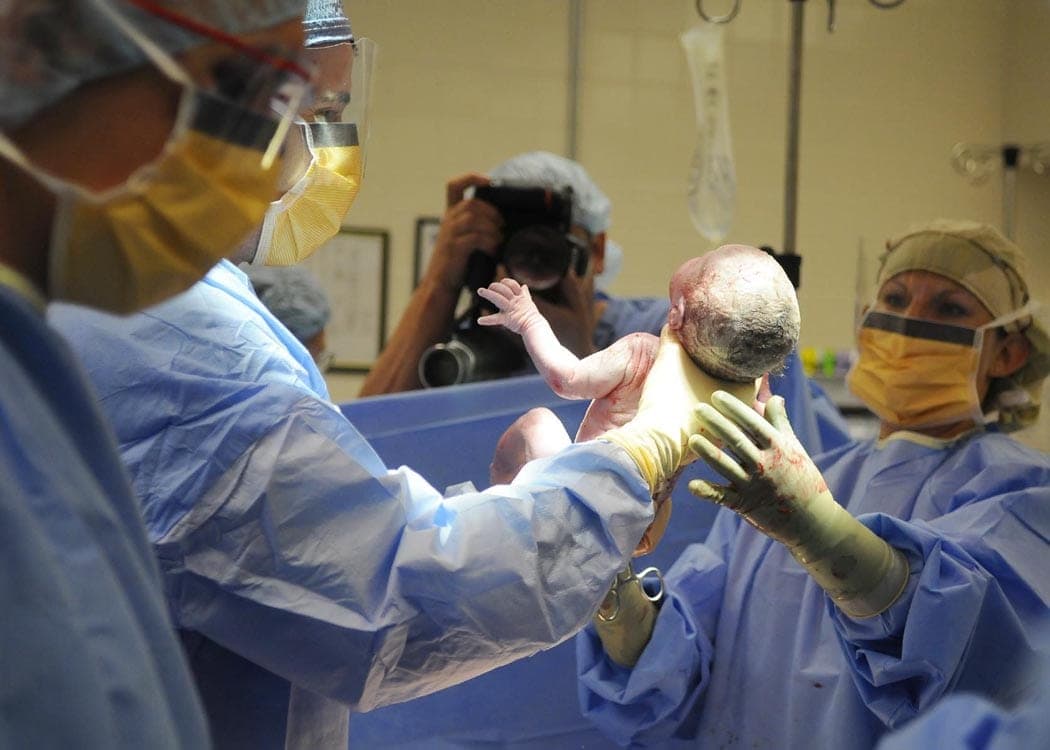ROME — Although Italy claims to have one of the most sophisticated abortion laws in the world, what it apparently doesn’t have are doctors willing to perform them.
Law 194, signed in 1978 and approved by popular referendum in 1981 over the Church’s stern opposition, allows for the woman wishing to have an abortion to do so within the first 90 days of pregnancy. It also created public counseling facilities for the purpose of providing women with alternatives to abortion.
One of the main aspects of law 194 is that it permits doctors to be conscientious objectors and therefore refuse to terminate a pregnancy. What makes Italy unique is that an overwhelming majority of doctors fall under this category. On average, seven out of ten doctors are conscientious objectors.
It is precisely this issue that led the governor of Lazio, Nicola Zingaretti, a member of the center-left Democratic Party, to announce a competitive exam for the San Camillo, one of the largest hospitals in Rome, offering two positions only to doctors who are not conscientious objectors.
The result was uproar from both sides of the argument.
The director of the national health office for the Italian Episcopal Conference (CEI), Father Carmine Arice, expressed dismay at the decision.
“It fundamentally changes the nature of the law 194 that did not have the goal of inducing abortions but to prevent them,” Arice told the Italian news agency ANSA. “It does not respect the constitutional right of being a conscientious objector.”
Zingaretti defended his initiative, though he admitted that allowing only doctors who are open to performing abortions into the competition represented a novelty in the Italian health system.
The governor underlined that the positions were for a sector designed to deliver abortion services, and therefore conscientious objectors could not participate.
“In this situation, the right to be a conscientious objector is guaranteed 100 percent,” Zingaretti said in an interview suggesting that if they were allowed into the competition they would be forced to perform abortions and violating their conscience. However, keeping them out of the competition is the only way to protect them from that outcome.
A parliamentary study found that on average 70 percent of doctors in Italy are conscientious objectors, but in eight regions that percentage rises sharply. In Lazio, the region including Rome, 85.6 percent of gynecologists do not perform abortions followed by Basilicata (84.1 percent), Campania (83.9 percent), Sicily (83.5 percent) and Molise (82.8 percent).
In Molise, for example, there is only one doctor who is not a conscientious objector, and he performs an average of five abortions a week.
Doctor Michele Mariano, the only physician in Molise willing to perform abortions, believes that there should not be the possibility of “opting out,” and sees his duty both in helping women and respecting the law.
“I perform 400 abortions a year,” Mariano told Italian newspaper La Repubblica, “but do you want to know what my greatest satisfaction is? When a woman chooses to keep the child. When she gives birth. Because I chose this job to bring children to the world, not to eliminate them.”
The number of conscientious objectors in Italy has remained stable during the past few years. What has changed is the number of people seeking abortions: in 1983 the number was 233,976, but in 2014 it was 97,535, according to the Italian Health Ministry.
The minister Lorenzin as well as CEI believe that this data allows for the efficient application of law 194.
“The Health Ministry has recently done a study showing that the number of doctors who are not objectors is sufficient to cover the demand of voluntary pregnancy interruptions,” CEI said in a statement.
The study, relative to 2014, proved that the average number of abortions performed is 1.6 a week, with Molise being an exception.
“I hope that doctors will say their opinion consciously and authoritatively, because they are the first to be hit by this decision,” said Arice.
Interestingly, the proposed labor contract for the new employees of the San Camillo does not allow personnel to resort to law 194 if they were to change their minds later.
Filippo Maria Brescia, president of Catholic Doctors, describes a “health system panorama that is crumbling: in the Lazio region, competitions are made and open-ended contracts are signed with the clause of not being objectors.” Brescia called the competition discriminatory and “unacceptable.”
“They want to make the doctor into a regime executioner,” said Gian Luigi Gigli, president of the Italian Movement for Life. “We are one step away from approving in Italy a law similar to the recent French one that considers ‘obstructing abortions’ a crime.”
In France, only seven percent of doctors are conscientious objectors and in countries such as Sweden there is no such legal concept.
European institutions, in fact, have often criticized the Italian government on the matter of abortions. In 2014, the European Council said that Italy discriminates against doctors and medical personnel who are not objectors.
But far-right populist leader, Giorgia Meloni won’t have it.
“The rulings by the European Council are ridiculous,” she said in an interview. “Let’s start using European funds to support maternity, then we will see how many women wish to have an abortion.”

















